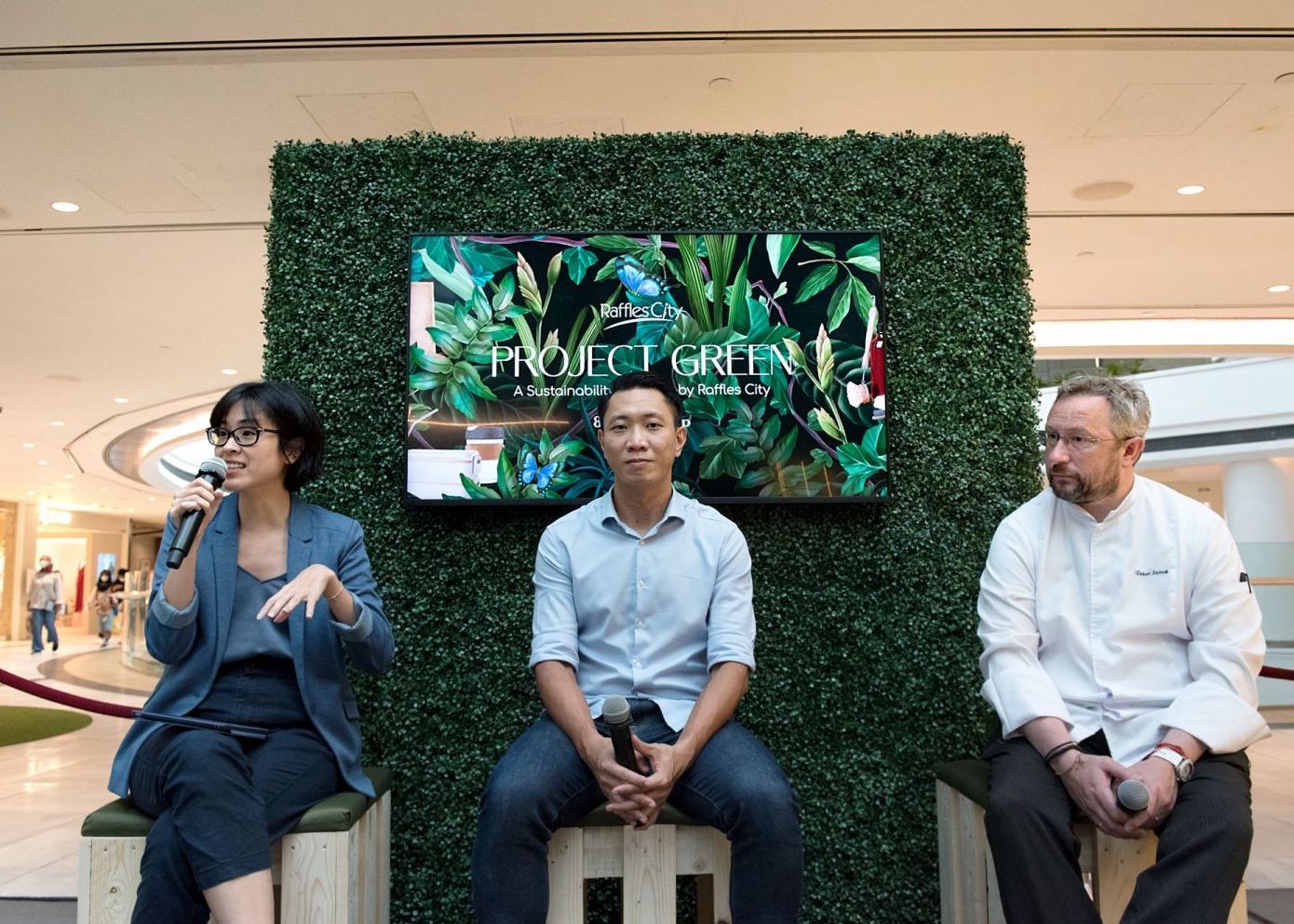As part of Raffles City Singapore’s Project Green initiative, Gen.T organised a panel discussion on the impact of food and packaging waste on the environment—and how to address it with technology
On July 29, we hosted a panel discussion to raise awareness about the impact of the food and packaging industries on the environment.
Organised as part of Raffles City Singapore’s Project Green initiative, the session was held at the atrium space on the third floor of the integrated complex.
There, a showcase has also been erected since July 8 to shed light on Raffles City’s sustainability plans and efforts, which include encouraging shoppers to bring their own reusable bags and tenants to reduce their waste. Masterclasses and upcycling workshops are also being held by the likes of Nespresso, L’occitane and Terra SG to educate shoppers on becoming more eco-conscious. The showcase runs until September 25.
Ng Pei Kang, the founder and CEO of sustainable packaging company Tria, and Robert Stirrup, director of culinary operations at Fairmont Singapore and Swissôtel the Stamford, were part of the panel to share the solutions that they have individually implemented to help reduce the waste produced by the food and hospitality industries.
Read more: Sustainable Shopping: Learn How To Be A Mindful Consumer
For Stirrup, measures have been put in place to reduce the waste that is coming out of his kitchens, where he oversees some 400 staff across restaurants, bars and banquet spaces. “We did an audit of each kitchen to see what’s being thrown in the bin in terms of food waste,” he shared during the panel, adding that his team works closely with companies such as Lumitics to calculate this waste and identify ways to cut it down or cross-utilise it.
At the two hotels, for instance, Stirrup and his team are experimenting with ways of using the food waste at the in-house aquaponics and herb farms.










